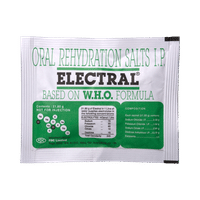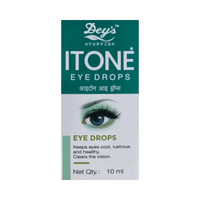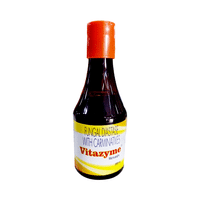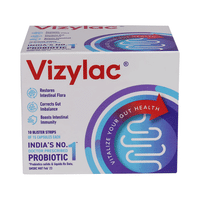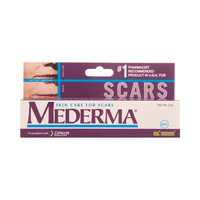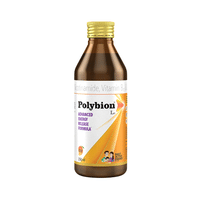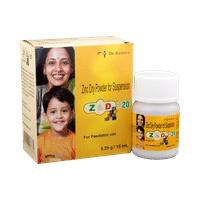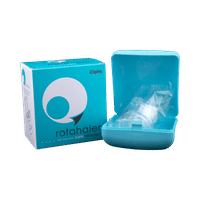Rs.75for 1 tube(s) (10 gm Cream each)
food interaction for Nadimin Cream
alcohol interaction for Nadimin Cream
pregnancy interaction for Nadimin Cream
lactation interaction for Nadimin Cream
medicine interaction for Nadimin Cream
food
alcohol
pregnancy
lactation
medicine
No interaction found/established
No interaction found/established
Nadimin Skin Cream may be unsafe to use during pregnancy. Although there are limited studies in humans, animal studies have shown harmful effects on the developing baby. Your doctor will weigh the benefits and any potential risks before prescribing it to you. Please consult your doctor.
CONSULT YOUR DOCTOR
Nadimin Skin Cream is probably unsafe to use during breastfeeding. Limited human data suggests that the drug may pass into the breastmilk and harm the baby.
CONSULT YOUR DOCTOR
No interaction found/established
SALT INFORMATION FOR Nadimin 1% w/w Cream
Nadifloxacin(1% w/w)
Nadimin cream uses
{med_name} is used in the treatment of bacterial skin infections.
How nadimin cream works
Nadimin Skin Cream is an antibiotic. It kills the bacteria that cause skin infections by preventing the bacterial cells from dividing and repairing.
Common side effects of nadimin cream
Application site reactions (burning, irritation, itching and redness)
SUBSTITUTES FOR Nadimin Cream
24 Substitutes
24 Substitutes
Sorted By
 Rs. 196.75pay 155% more per gm of Cream
Rs. 196.75pay 155% more per gm of Cream Rs. 134.31pay 73% more per gm of Cream
Rs. 134.31pay 73% more per gm of Cream Rs. 195pay 70% more per gm of Cream
Rs. 195pay 70% more per gm of Cream Rs. 137pay 81% more per gm of Cream
Rs. 137pay 81% more per gm of Cream Rs. 170pay 47% more per gm of Cream
Rs. 170pay 47% more per gm of Cream
Expert advice FOR Nadimin Cream
- You have been prescribed Nadifloxacin for the treatment of bacterial skin infections.
- It should be applied to the affected areas, two or three times daily, or as advised by your doctor.
- Don't use it more often or for longer than advised by your doctor. Inform your doctor if your skin problem hasn't improved after seven days of treatment.
- Treatment should be continued until at least two days after the condition has resolved.
- Don't apply it to broken skin and take care to avoid getting it in your eyes, nose, or mouth.
- Don't cover the area being treated with airtight dressings such as bandages unless directed by a doctor, as this may increase the risk of side effects.
- It may cause temporary burning, itching, or redness at the application site. This is usually mild. Consult your doctor if you experience a more severe reaction.
- You have been prescribed Nadifloxacin for the treatment of bacterial skin infections.
- It should be applied to the affected areas, two or three times daily, or as advised by your doctor.
- Don't use it more often or for longer than advised by your doctor. Inform your doctor if your skin problem hasn't improved after seven days of treatment.
- Treatment should be continued until at least two days after the condition has resolved.
- Don't apply it to broken skin and take care to avoid getting it in your eyes, nose, or mouth.
- Don't cover the area being treated with airtight dressings such as bandages unless directed by a doctor, as this may increase the risk of side effects.
- It may cause temporary burning, itching, or redness at the application site. This is usually mild. Consult your doctor if you experience a more severe reaction.
Frequently asked questions FOR Nadimin 1% w/w Cream
Nadifloxacin
Q. How to use Nadimin Skin Cream?
Before using Nadimin Skin Cream, clean and dry the affected area. Gently and thoroughly massage it into the skin. Be careful not to get the medication in your eyes or mouth. If Nadimin Skin Cream gets in your eyes accidentally, wash with plenty of water and call your doctor if your eyes are irritated.
Q. Is Nadimin Skin Cream effective for acne?
Yes. Nadimin Skin Cream is effective, safe and well-tolerated for acne. Use it as directed by the doctor to get the maximum benefit.
Q. What precautions do I need to take while using Nadimin Skin Cream?
Be careful not to get Nadimin Skin Cream into your eyes or mouth. If you happen to get it in your eyes, rinse off with plenty of water immediately and contact your doctor. You must not use Nadimin Skin Cream if you are allergic to it or any of its ingredients. Tell your doctor if you notice any allergic reaction while using it for the first time. Inform your doctor if you are taking any medicines regularly, to prevent any allergic reaction with other medicines. Do not cover the area being treated with Nadimin Skin Cream with a bandage, as this may increase absorption of this medicine and increase the side effects. Do not use more than what is recommended to relieve your symptoms faster. Using more than what is advised will only increase the side effects. Let your doctor know if you are planning to conceive. Pregnant and breastfeeding mothers should use Nadimin Skin Cream only if prescribed by the doctor.













